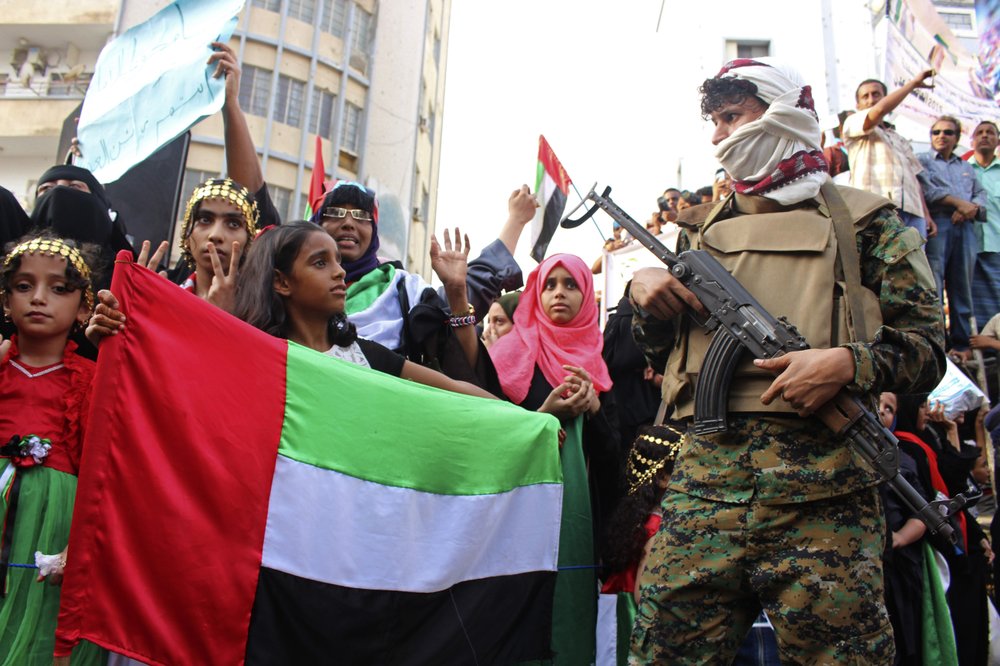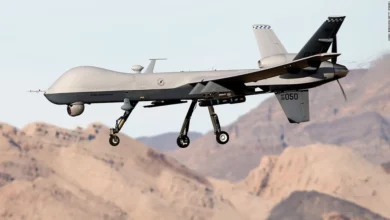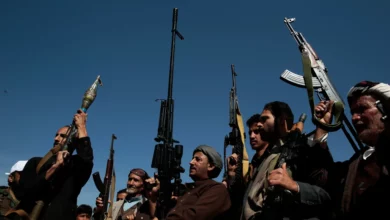Yemen's President Ali Abdullah Saleh was due to sign a pact on Sunday to become the third Arab leader ousted this year by protests, under stronger diplomatic pressure this time after twice backing out at the last minute.
Hundreds of Saleh loyalists blocked roads to protest against the deal, piling stones in streets as makeshift barriers and blocking cars, while across town anti-Saleh protests that have continued for three months drew tens of thousands of people.
More than 170 protesters have been killed in a crackdown on demonstrations demanding an end to Saleh's 30 year rule, part of the wave of uprisings across North Africa and the Middle East that swept aside the leaders of Tunisia and Egypt.
Gulf neighbors, anxious to prevent the Arab world's poorest country from slipping into anarchy, have negotiated a deal to ease Saleh out of power within 30 days, with a promise of immunity from prosecution. The opposition signed it on Saturday.
"We reject signing the Gulf initiative and the coup against legitimacy," some pro-Saleh demonstrators shouted from their cars over loudspeakers.
Saleh, a shrewd political survivor and veteran ally of the United States, is being pressed by his neighbors and Washington to sign the deal, which he last backed out of signing on May 18.
Foreign ministers of the Gulf Arab states that negotiated it were expected to discuss Yemen at a meeting on Sunday in Riyadh.
U.S. President Barack Obama said in a speech on U.S. policy in the Arab world on Thursday that Saleh needed to "follow through on his commitment to transfer power."
Yemen has become home to one of the most potent wings of al Qaeda, and the United States and Saudi Arabia fear that worsening unrest could give the militants more room to thrive.
Yemen also faces revolts from Shi'ite rebels in the north and separatists in the south.
Protesters have threatened to step up their campaign against Saleh by marching on government buildings, a tactic that led to more bloodshed this month when security forces opened fire to stop them. Strikes have brought commerce to a halt in many cities and protests have created fuel shortages.




